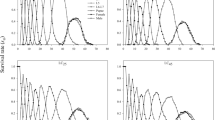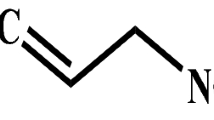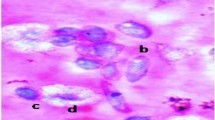Abstract
THE cotton leaf worm, Prodenia liturst (F.) (Lepidop-tera : Noctuidae), has long been established in Egypt as a major pest of cotton and a wide variety of other plants. About 112 plant species belonging to 44 families are reported as hosts of the cotton leaf worm in tropical and temperate zones of the world. These plants include 73 species recorded from Egypt1.
This is a preview of subscription content, access via your institution
Access options
Subscribe to this journal
Receive 51 print issues and online access
$199.00 per year
only $3.90 per issue
Buy this article
- Purchase on Springer Link
- Instant access to full article PDF
Prices may be subject to local taxes which are calculated during checkout
Similar content being viewed by others
References
Moussa, M. A., Zaher, M. A., and Kotby, F., Bull. Soc. Entomol. Egypt, 44, 241 (1960).
Abdel-Malek, A. A., and Kevan, D. K., Nature, 192, 681 (1961).
Bushland, R. C., and Hopkins, D. E., J. Econ. Entomol., 44, 725 (1951).
Author information
Authors and Affiliations
Rights and permissions
About this article
Cite this article
ABDEL-MALEK, A. Inhibitory Effect of L-Methionine-methyl-14C on Oviposition by Females of the Cotton Leaf Worm, Prodenia litura (F.), induced by Radioactive Males. Nature 200, 604–605 (1963). https://doi.org/10.1038/200604a0
Issue Date:
DOI: https://doi.org/10.1038/200604a0
Comments
By submitting a comment you agree to abide by our Terms and Community Guidelines. If you find something abusive or that does not comply with our terms or guidelines please flag it as inappropriate.



